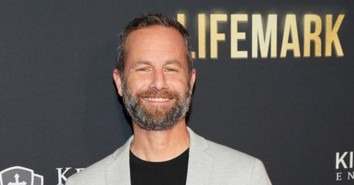Preach the Whole Truth ... Except If it Offends?

Update: After reading Tom Gilson's response to my article, and re-reading his, I realize I misrepresented his position. Tom aims to provide practical, effective ways the church and church leaders can be bold in fighting and winning the good fight. We both agree on the need to stand and stand strong against the cultural currents and the critical need to train our congregations in how to boldly present, and bear witness, to the Truth. I apologized to Tom for any confusion. Nevertheless, I think it's important to revisit this op-ed from 2018.
I appreciate Tom Gilson’s heart in his recent article, Preach the Whole Truth? Yes. Toss a Grenade In Your Sanctuary? Not Wise, but a sentence stood out that concerns me. He stated, “Churches must speak the whole truth — but they don’t have to do it in the Sunday morning sermon. The sermon might even be the worst place to do it.” I understand what he is saying, but it may motivate silent pulpits rather than inspire them. Yes, we must be filled with love and God’s Spirit, but this combination actually sparks boldness rather than hinders it. Are we pleasing God or men ... are we cowards or watchmen? Because of this, I’m re-releasing what I wrote a year ago and have added some points.
There is a very troubling trend in the evangelical church as a whole. Today, the truth is often neglected, watered-down, or avoided altogether in the hope of not offending members and building a large audience. Judgment is never mentioned, repentance is never sought and sin is often excused. We want to build a church rather than break a heart; be politically correct rather than biblically correct; coddle and comfort rather than stir and convict.
“Christ Jesus came into the world to save sinners” (I Timothy 1:15), yet, many avoid words such as sin and repentance. The good news about Christ can only be appreciated with the bad news as the backdrop. There are times when the saints must be fed, and there are times when the sinners must be warned (C.H. Spurgeon). Preaching must be done with God-given authority and address hard topics to truly be effective. When we fail to proclaim God’s Word faithfully, we run the risk of “encouraging sin” and “perverting the words of the living God” (cf. Jeremiah 23).
Pastors are to be pillars who support truth not champions of silence and appeasement. God has given us a wonderful gift known as America. The government isn’t bad or good; her people determine success or failure. Why would God ordain our government and then not want us to steward His gift? Many have been guilty of not getting involved by saying, “We shouldn’t say or do anything political. All we need to do is preach the gospel and avoid controversial topics.” Be careful ... although the gospel is our primary focus, this shouldn’t be an excuse against action or conviction.
James A. Garfield, an ordained minister and twentieth President of the United States, said, “Now, more than ever before, the people are responsible for the character of their Congress. If that body be ignorant, reckless, and corrupt, it is because the people tolerate ignorance, recklessness, and corruption.” We are actually voting for principles, not people—all candidates are sinners. “In what direction will they lead our country?” is the question we should be asking. Even more importantly, what country will we leave for our children?
We don’t have to abandon our ethics or compromise our principles to be involved in politics—what good is salt left in the shaker, or a light that is hidden? Contextually, when Jesus referred to being the “salt and light,” He was referring to holy living at the individual level, but the overlapping principle applies to all areas of life. “Politics” is not a bad word. In simple terms, politics refers to governing or leading a group of people. Politics won’t save America, but in order to implement change and help others, we must take action; hence the political process. Would you have remained silent in the 1800s over slavery? Of course not.
Politics that once focused largely on the economy, national security, and the deficit, now tackles important moral issues. These major issues have enormous implications; to remain silent actually makes a statement that we are not concerned enough. This is not just about the loss of jobs; it’s about the loss of morality. We’re not just talking about adding millions of dollars to the national deficit; we’re talking about aborting millions of babies. We’re not only talking about fluctuations in the housing market; we’re talking about creating life simply to destroy it. This shift requires us to stay closely involved. Topics that are “too controversial” are often critically important; we can no longer ignore them.
Interestingly enough, the stability of America is one of the top concerns on the minds of many today. There was a time in recent history when America felt secure knowing that the most formidable enemies were abroad. Not so today. While we are concerned with terrorist attacks, and rightly so, there is a greater threat from corruption within. We, like the mighty Roman Empire that collapsed centuries ago, are crumbling from within. There are people and groups who are strongly committed to the destruction of anything rooted in our nation’s Christian heritage. They attempt to be “one nation ‘above’ God,” rather than “one nation ‘under’ God.” Scripture identifies this as foolishness, self-exaltation, and arrogance—the downfall of nations.
There is a saying that one generation plants trees for the next generation. I’m concerned that instead of planting, we are removing and destroying the very covering that protects us. As a result, our legacy as a great and noble nation has all but been forgotten. For instance, most schools no longer teach students about the spiritual foundation that has guided America throughout her history. Consequently, America’s moral and religious heritage is often deleted, grossly distorted, or revised altogether. Students often miss the critical connection between America’s unparalleled greatness, her rise to world leadership, and the spiritual foundation that made it possible. This should concern us. The ideas of the classroom in one generation will create the ideas of government within the next.
Today, our culture promotes relativism, and man does what is right in his own eyes. Again, according to Scripture, to his own destruction. God’s Word says to confront, confess, and turn from our sins; relativism encourages us to ignore, overlook, and continue in them. Although this position may seem radical or extreme, we are living in extremely critical times. Make no mistake about it: We are witnessing the rapid deterioration of a nation right before our eyes. But there is hope: 2 Chronicles 7:14 calls out from the past with resounding clarity to America today: If My people will humble themselves and pray and seek My face and turn from their wicked ways, I will hear from heaven, forgive their sins, and heal their land.
There are times to encourage, motivate, and uplift, but there are also times to confront, challenge, and contend for what is right—that time is now. Yes, we must be filled with love and God’s Spirit. Again, this combination actually sparks boldness rather than hinders it. The day of the silent pastor must end. Are we pleasing God or men … are we cowards or watchmen? More at ShaneIdleman.com.
Photo courtesy: Getty Images/Christin Lola
The views expressed in this commentary do not necessarily reflect those of CrosswalkHeadlines.
Shane Idleman is the founder and lead pastor of Westside Christian Fellowship in Southern California and the WCF Radio Network. More can be found at ShaneIdleman.com. Free downloads of his eBooks can be found at www.WCFAV.org. Visit him on Facebook and Twitter. Subscribe to his new podcast, Idleman Unplugged. You can also follow Pastor Shane on the free speech platform Parler.
Shane Idleman is the founder and lead pastor of Westside Christian Fellowship in Southern California and the WCF Radio Network. More can be found at ShaneIdleman.com, including free downloads of his eBooks. Visit him on Facebook and Twitter. Subscribe to his new podcast, Idleman Unplugged.
Originally published December 06, 2019.





